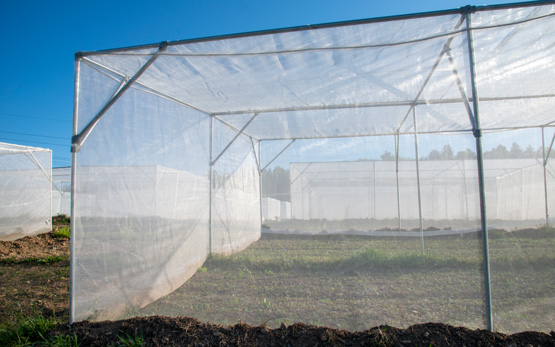Matthias Albrecht leads the research contributed by Agroscope to this project (www.poshbee.eu). In this video, he outlines the initial findings of the trials and discusses the importance of an improved understanding of the multiple stressors of bee health in the further development of effective mitigation measures.
PoshBee in a nutshell
The EU Horizon 2020 Project ‘PoshBee’ (Pan-European Assessment, Monitoring and Mitigation of Stressors on the Health of Bees) aims to develop and implement scientific principles for effective bee-protection measures from 2019 to 2023. The focus is on both honeybees and wild bees (bumblebees and solitary wild bees). At Agroscope’s Reckenholz site, we work with honeybees, buff-tailed bumblebees, and in particular with solitary mason bees.
Our focus is on stress factors – for example, the influence of plant-protection products, of different habitat- and food quality, and of diseases which are potentially transmitted via honeybees to wild bees (and vice-versa). In addition, we are also keen to learn more about potential interactions of the investigated stress factors.
We look at possible effects on bee mortality in all life-history stages (e.g. larval, adult), on the reproductive success and fitness of the bees, and on their orientation ability and pollination performance.
The aim is to discover which practical measures keep bees healthy. In addition, we hope to develop novel tools, such as a proteomic-based ‘health card’ for bees allowing the rapid detection in the laboratory of stress levels and exposure to stress factors.
Who is involved in the project?
42 partners from the whole of Europe: not only research institutions but also beekeeping and farmers’ associations, NGOs, etc. are involved. It is only in this way that measures can be quickly implemented in practice.
Who funds the project?
The EU Horizon2020 Research Programme, www.poshbee.eu
Who heads the project?
Royal Holloway and Bedford New College, London, UK.
Contact
Further Information
Horizon2020-Project PoshBee
Fotos

Last modification 22.10.2020





